Domain Name System (dns) Uses Both Tcp And Udp
Below are the TCPUDP interview questions and answers which generally asked in an interview. The connection is established between the DNS Server to transfer the zone data and Source and Destination DNS Servers will make sure that data is consistent by using TCP ACK bit.
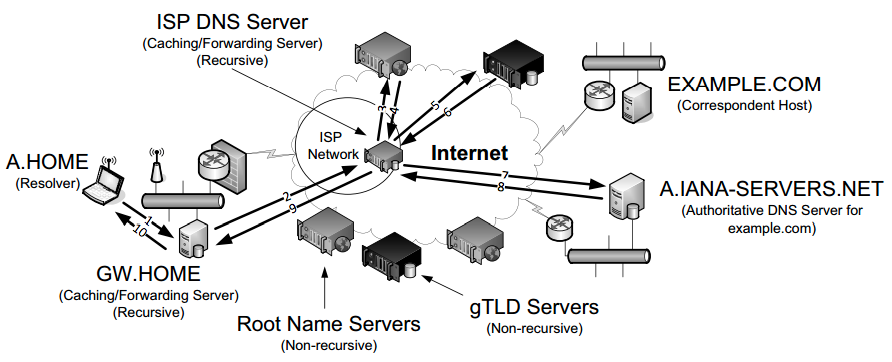 Chapter 11 Name Resolution And The Domain Name System Dns Shichao S Notes
Chapter 11 Name Resolution And The Domain Name System Dns Shichao S Notes
Most prominently it translates more readily memorized domain names to the numerical IP addresses needed for locating and.
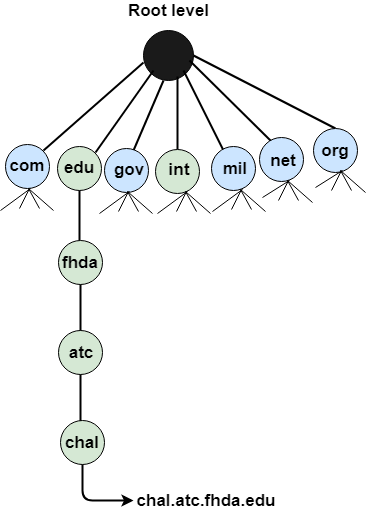
Domain name system (dns) uses both tcp and udp. Network traffic mainly categorizes into two types. DNS uses UDP for DNS Queries over Port. While theyre similar in many ways their differences make them useful for different purposes.
So DNS uses TCP for Zone transfer and UDP for name queries either regular primary or reverse. However if DNS is enabled on your storage system it makes outgoing connections using UDP port 53 for host name and IP address lookups. This is used for DNS queries on the client-side.
UDP can be used to exchange small information whereas TCP must be used to exchange information larger than 512 bytes. Connect with a DNS server to resolve a particular domain name. Both protocols help in to establish the connection and transfer data between two ends of the communication.
DNS is short for Domain Name System. Your storage system does not typically listen on these ports because it does not run a domain name server. DNS uses both TCP and UDP port 53.
When the length of the answer exceeds 512 bytes and both client and server support EDNS larger UDP packets are used. Actually DNS primarily uses the User Datagram Protocol UDP on port number 53 to serve requests. Some resolver implementations use TCP.
DNS Domain Name System Name service in Internet Zone is an administrative unit domain is a subtree. A DNS server uses TCP port 53 for zone transfers and UDP port 53 for name resolutions. The Domain Name System DNS is a hierarchical and decentralized naming system for computers services or other resources connected to the Internet or a private network.
DNS or other Services works on both TCP and UDP DNS port - 53 The domain name system DNS connects URLs with their IP address. An IP address is presented with 4 octets separated by decimals like 19216811. TCP is a connection-oriented protocol.
Explain Transmission Control Protocol TCP. Otherwise the query is sent again using the Transmission Control Protocol TCP. Name to Address Resolution The host request the DNS name server to resolve the domain name.
Transmission Control Protocol TCP and User Datagram Protocol UDP. This port is used when a computer mobile etc. TCP and UDP are two commonly used protocols that netizens interact with on a daily basis that determine how data is transferred over the Internet.
Otherwise the query is sent again using the Transmission Control Protocol TCP. DNS Domain Name System uses Port 53 UDP to resolve human-readable hostnames to numerical IP addresses TCP may also be used to achieve reliable querying. Whether it opts for one or the other depends on what its trying to do.
A client computer will always send a DNS Query using UDP Protocol over Port 53. And the name server returns the IP address corresponding to that domain name to the host so that the host can future connect to that IP address. DNS requests are very tiny so they have no problems fitting into the UDP segments.
When the length of the answer exceeds 512 bytes and both client and server support EDNS larger UDP packets are used. A domain name and its matching IP address is called a DNS record. The UDP just transmits the data and save plenty of time.
Domain Name Server DNS is a standard protocol that helps Internet. TCP is also used for tasks such as zone transfers. DNS queries consist of a single UDP request from the client followed by a single UDP reply from the server.
Actually DNS primarily uses the User Datagram Protocol UDP on port number 53 to serve requests. DNS service uses both TCP and UDP port 53. Domain Name System known more commonly as the abbreviated DNS is a decentralised naming system that computers and servers use to locate resources on a network such as the world wide web.
It doesnt use a time-consuming three-way hand-shake procedure to start the data transfer like TCP does. The Domain Name System DNS uses UDP port 53 and TCP port 53. TCP is also used for tasks such as zone transfers.
DNS or Domain Name System basically translates those domain names into IP addresses and points our device in the right direction. The Domain Name System DNS provides an easy way to remember addresses. When Does DNS Switch to TCP.
The most frequently used port for DNS is UDP 53. On the client-side the frequently used port for DNS is UDP 53. Without DNS how many octets for an Internet Protocol IP address would have to be memorized.
As you just read the UDP is unreliable but a lot faster than TCP but dont panic just yet. DNS Domain Name System uses both TCP and UDP port 53 The most commonly used port for DNS is UDP 53. Notice that DNS uses both TCP and UDP.
Why does DNS use UDP. If a client doesnt get response from DNS it must retransmit the data using TCP after 3-5 seconds of interval. DNS has always been designed to use both UDP and TCP port 53 from the start 1 with UDP being the default and fall back to using TCP when it is unable to communicate on UDP typically when the packet size is too large to push through in a single UDP packet.
UDP can support many more client at the same time thanks to the lack of connection state. It associates various information with domain names assigned to each of the participating entities. DNS queries consist of a single UDP request from the client followed by a single UDP reply from the server.
Domain Name System uses TCP for Zone transfer and UDP for name resolving.
 Tcp Ip Protocols Icmp Udp Ftp Http Reference Page Osi Model Cisco Networking Cisco Networking Technology
Tcp Ip Protocols Icmp Udp Ftp Http Reference Page Osi Model Cisco Networking Cisco Networking Technology
 Dns Domain Name System Javatpoint
Dns Domain Name System Javatpoint
 Dns Client Service Architecture Dns Network Infrastructure Information And Communications Technology
Dns Client Service Architecture Dns Network Infrastructure Information And Communications Technology
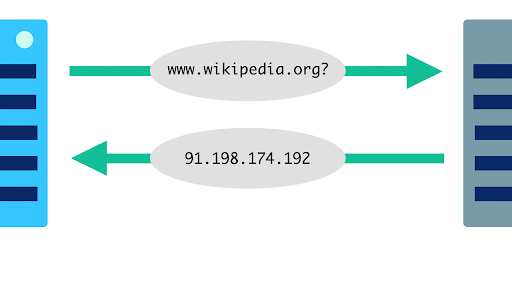
 Querying The Dns Server Part 1 Computer Knowledge Dns Computer Technology
Querying The Dns Server Part 1 Computer Knowledge Dns Computer Technology
Domain Name System Dns Resource Record
 Difference Between Dns And Dhcp Geeksforgeeks
Difference Between Dns And Dhcp Geeksforgeeks
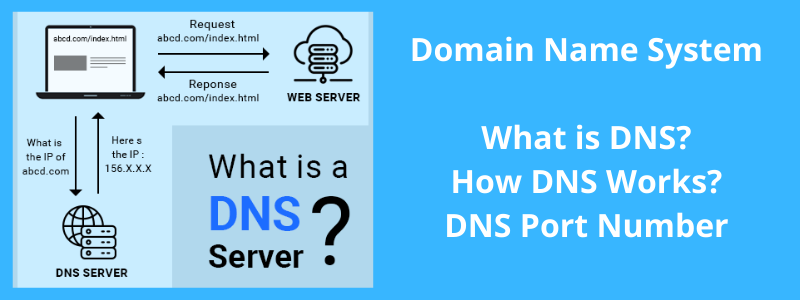 Dns Port Number What Is Domain Name System How Dns Works
Dns Port Number What Is Domain Name System How Dns Works
 What Is Dns And How It Works Domain Name System Dns Name Server Computer Science
What Is Dns And How It Works Domain Name System Dns Name Server Computer Science
 Domain Name System Dns Ccc Simplifyccc Nielit Install Now Https Play Google Com Store Apps Details Id Com Computer Network Dns System
Domain Name System Dns Ccc Simplifyccc Nielit Install Now Https Play Google Com Store Apps Details Id Com Computer Network Dns System
 Dns Basics And Building Simple Dns Server In Go By Mohan Prasath Medium
Dns Basics And Building Simple Dns Server In Go By Mohan Prasath Medium
 The Tcp Ip Protocol Suite Includes Many Protocols As Shown In Figure Below Each Layer Has Own Workin Networking Basics Communication Process Cisco Networking
The Tcp Ip Protocol Suite Includes Many Protocols As Shown In Figure Below Each Layer Has Own Workin Networking Basics Communication Process Cisco Networking
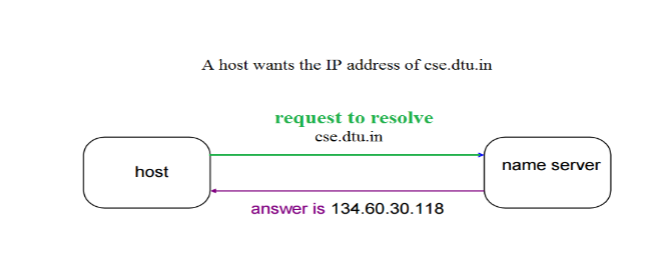 Domain Name System Dns In Application Layer Geeksforgeeks
Domain Name System Dns In Application Layer Geeksforgeeks


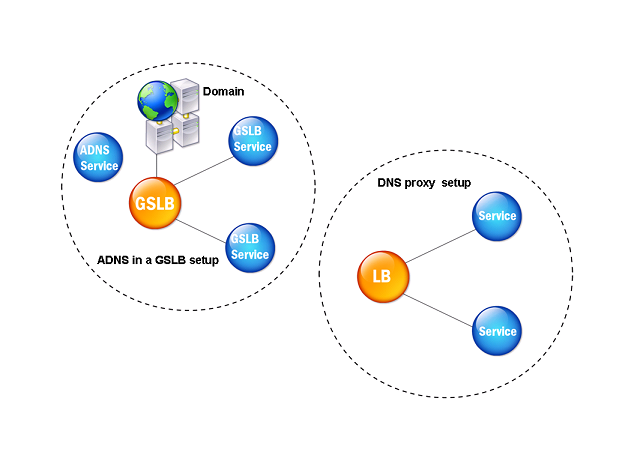



Post a Comment for "Domain Name System (dns) Uses Both Tcp And Udp"